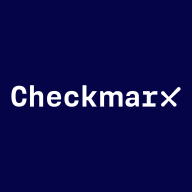

SonarQube Cloud and Checkmarx IaC Security KICS compete in the software security and quality analysis category. Checkmarx seems to have the upper hand due to its robust feature set, but SonarQube is favored for pricing and support.
Features: SonarQube Cloud focuses on code quality and continuous inspection, integrating deeply with DevOps pipelines, supporting various languages, and integrating with development tools. Checkmarx IaC Security KICS specializes in Infrastructure as Code security with detailed scanning, remediation capabilities for cloud-native apps, and stronger security features for IaC environments.
Ease of Deployment and Customer Service: SonarQube Cloud provides straightforward deployment prized for simplicity and scalability, coupled with efficient customer support and easy resource access. Checkmarx IaC Security KICS offers a comprehensive deployment model tailored for IaC with solid customer service, specialized for complex security needs.
Pricing and ROI: SonarQube Cloud is cost-effective with a lower setup cost, offering rewarding ROI for code quality-focused teams. Checkmarx IaC Security KICS has a higher setup cost, justified by its advanced security features, and delivers substantial ROI for companies prioritizing cloud infrastructure security.

Checkmarx IaC Security / KICS provides a comprehensive approach to infrastructure as code security, helping organizations identify and remediate vulnerabilities in their IaC templates efficiently.
KICS, an open-source tool by Checkmarx, focuses on strengthening cloud infrastructure security. It scans IaC files like Terraform, AWS CloudFormation, Kubernetes, and Azure Resource Manager, identifying misconfigurations and security flaws before deployment. By integrating seamlessly into CI/CD pipelines, it ensures secure code development without impeding software delivery speed. KICS is designed for developers, DevOps, and security teams to enhance their security posture effectively.
What are the most valuable features of Checkmarx IaC Security / KICS?In industries like finance, healthcare, and technology, implementing Checkmarx IaC Security / KICS enables organizations to meet stringent regulatory compliance requirements and safeguard sensitive data. By embedding security into the development lifecycle, companies can trust their cloud infrastructure setups, maintaining data integrity and customer trust.
SonarQube Cloud offers static code analysis and application security testing, seamlessly integrating into CI/CD pipelines. It's a vital tool for identifying vulnerabilities and ensuring code quality before deployment.
SonarQube Cloud is widely used for its ability to integrate with tools like GitHub, Jenkins, and Bitbucket, providing critical feedback at the pull request level. It's designed to help organizations maintain clean code by acting as a quality gate. This service supports development methodologies including sprints and Kanban for ongoing vulnerability management. While appreciated for its dashboard and integration capabilities, some users find initial setup challenging and note the need for enhanced documentation. The recent addition of mono reports and microservices support offers deeper insights into security and code quality, though container testing limitations and false positives are noted drawbacks. Manual intervention is sometimes required to address detailed reporting, with external tools being necessary for comprehensive analysis. Notifications for larger teams during serious issues and streamlined integration of new features are also areas of improvement.
What are the key features of SonarQube Cloud?In specific industries, SonarQube Cloud finds application in finance and healthcare where code integrity and security are paramount. It allows teams to identify critical vulnerabilities early and ensures that software development aligns with industry regulations and standards. By continuously analyzing code, it aids organizations in deploying secure and reliable applications, fostering trust and compliance.
We monitor all Static Application Security Testing (SAST) reviews to prevent fraudulent reviews and keep review quality high. We do not post reviews by company employees or direct competitors. We validate each review for authenticity via cross-reference with LinkedIn, and personal follow-up with the reviewer when necessary.